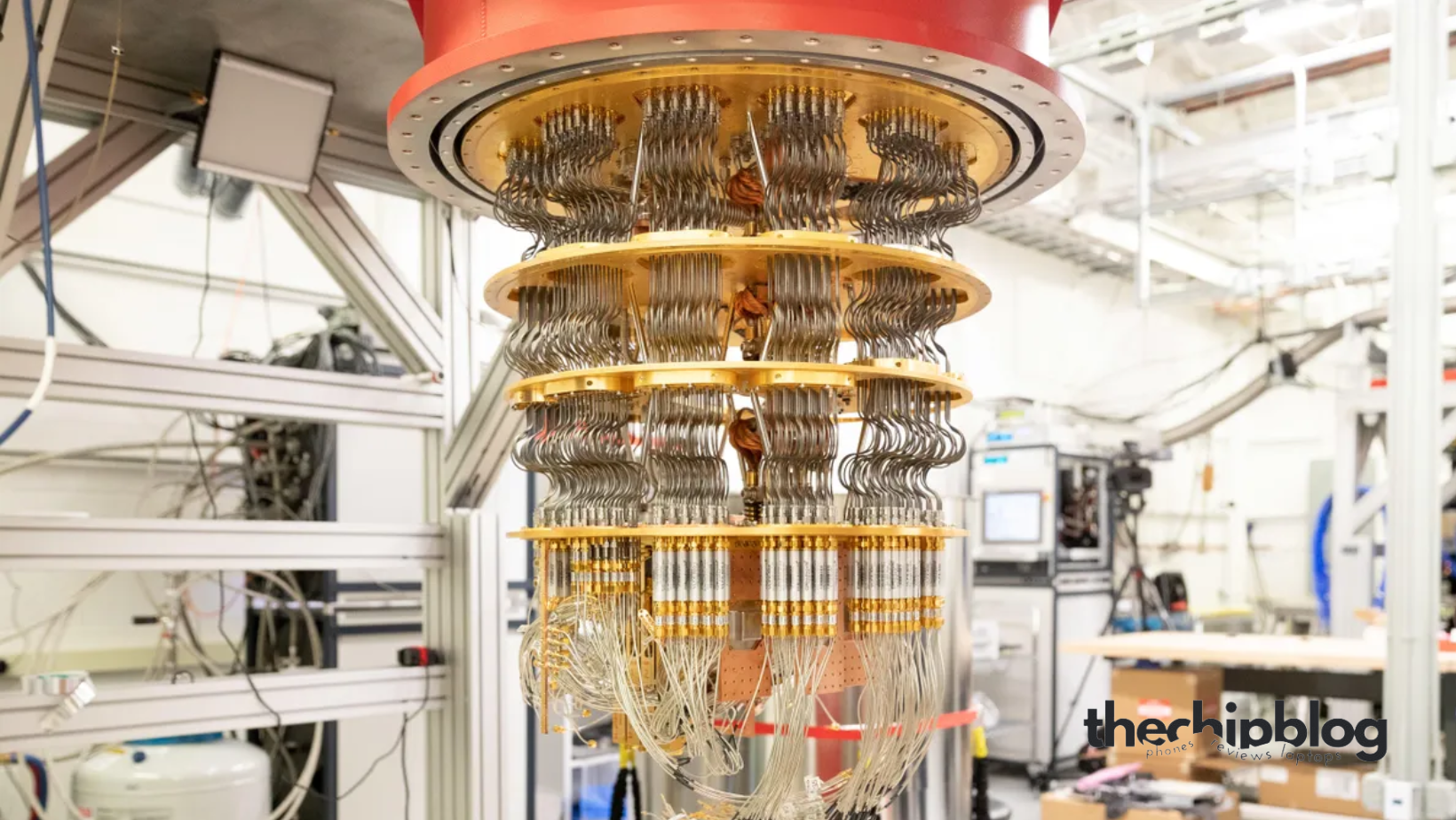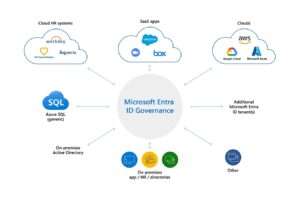Brace yourselves – Google has achieved a monumental breakthrough that radically reshapes the future of computing as we know it. In a landmark announcement, the tech titan has proclaimed quantum supremacy, shattering the boundaries of what was once thought possible with classical computers. This milestone represents a potential quantum leap in computational capabilities that could unravel some of humanity’s most profound mysteries and catalyze technological advancements we can scarcely envision today.
Join us as we delve deep into the profound implications of Google Announces Quantum Supremacy, Shattering Computational Limits and how this extraordinary feat could revolutionize everything from scientific research and cybersecurity to artificial intelligence and beyond. Prepare to have your perceptions of computational limitations utterly transformed.
What is Quantum Supremacy?
The term “quantum supremacy” refers to the ability of a quantum computer to solve a problem that is practically impossible for even the most powerful classical computers to crack within any reasonable timeframe. It’s the pivotal point where these exotic quantum machines definitively outpace traditional silicon-based computing.
While classical computers store information as binary 0s or 1s, quantum computers leverage the mind-bending principles of quantum mechanics and quantum bits (qubits) that can exist as 0s, 1s, or both states simultaneously through a phenomenon known as “superposition.” This unique capability exponentially increases the computational power encoded in qubits compared to classical bits.
By harnessing quantum effects like superposition and “entanglement” where qubits become intricately linked, quantum computers can process staggering amounts of data in parallel that classical systems can only handle sequentially. For problems that grow exponentially more complex, quantum machines hit a “supremacy” stride where their computational prowess becomes incomparably superior.
How Did Google Achieve Quantum Supremacy?
Google made the quantum supremacy breakthrough with their Sycamore quantum processor – a cutting-edge, 54-qubit chip operating at ultra-low temperatures to maintain its delicate quantum state. In 2019, the Sycamore device took just 200 seconds to perform a calculation that the company estimated would take the world’s most advanced classical supercomputer, IBM’s Summit, around 10,000 years.
The specific task involved detecting patterns in a vastly complex yet randomly generated sequences of millions of numbers – the type of complex sampling problem with widespread applications yet fiendishly difficult for classical computers due to the exponential growth of possible solutions.
This computational tour-de-force resoundingly proved quantum computers can outclass even the most elite classical systems on specialized tasks designed to exploit their unique capabilities. While still extremely limited in scope, it’s an undeniable milestone heralding the dawn of a new era in computing.
However, it’s important to note that Google’s quantum supremacy achievement doesn’t render classical computers obsolete – at least not yet. These systems still vastly outperform existing quantum hardware on most general computing tasks. But this breakthrough does establish the first unequivocal demonstration that quantum machines can solve specific problem classes modern computers can never realistically handle due to computational limits.

What Are the Key Applications of Quantum Computing?
While still in its infancy, quantum computing holds staggering potential to transform nearly every industry and field of study. Here are some of the most anticipated real-world applications of this revolutionary technology:
Cryptography & Cybersecurity: Today’s encryption standards securing digital communications and transactions rely on the extreme difficulty of factoring large numbers for classical computers. However, a sufficiently advanced quantum computer running Shor’s algorithm could easily crunch these encryption keys, potentially compromising digital security worldwide. This highlights the urgency of developing “quantum-proof” encryption and cybersecurity protocols.
Conversely, quantum computers could make unbreakable cryptographic ciphers and perfectly secure communication networks possible through quantum key distribution and “quantum internet” concepts. Quantum sensors could also enhance physical security with detection capabilities far exceeding classical limits.
Materials Science: Accurately modeling molecular structures, chemical processes, and material properties requires simulating exponentially complex quantum interactions that overwhelm even the most powerful classical supercomputers. Quantum computing could unlock robust simulations of quantum systems ranging from new compounds to more efficient solar cells and advanced battery technologies.
Artificial Intelligence: Quantum computers coupled with quantum algorithms could allow machine learning models to process and identify patterns in large data sets far more efficiently than classical techniques. This could lead to breakthroughs in fields like medical diagnostics, financial modeling, supply chain logistics, and beyond.
Pharmaceuticals: Precisely simulating the complex biochemical interactions and quantum effects governing how potential drug molecules bind to target proteins requires immense compute power that quantum machines could provide. This could drastically accelerate the research and discovery of new lifesaving medicines.
Weather & Climate Forecasting: Ultra-precise global climate modeling is another computationally daunting challenge where quantum computers could enable more accurate simulations factoring in exponentially more variables and finer resolutions than today’s most advanced classical models. Improved forecasting capabilities are critical for disaster preparedness, emergency response, agriculture planning, and addressing climate change.
These are but a small sampling of the vast potential of quantum computing – the ramifications extend to virtually every computing and data-intensive endeavor including optimize traffic management, develop renewable energy solutions, efficiently schedule airline routes, and even decrypt the secrets encoded in the universe through quantum physics simulations of the “theory of everything.
While quantum computers may never entirely replace traditional computers, they could become highly specialized accelerators dramatically amplifying capabilities in areas where classical systems reach their limits.
What Hurdles Remain Before Practical Quantum Computing?
While Google’s achievement represents a watershed moment, developing a complete, fault-tolerant, universal quantum computer capable of tackling any problem remains an immense challenge with many technical hurdles to overcome:
Error Rates & Qubit Stabilization: Maintaining qubits in their delicate quantum states over extended periods for larger computations is enormously difficult. Minute disturbances from environmental factors like heat, electromagnetic fields, or stray particles can disrupt the system and introduce errors. To operate reliably, quantum computers will require advances in error detection, correction, and sub-nanoscalar precision isolation and stabilization of qubits.
Scalability Challenges: Adding more qubits rapidly increases complexity to maintain coherence and stability. Google’s Sycamore had just 54 qubits; a universal quantum computer could require millions or billions of qubits and yet-unknown quantum microarchitectures to handle immense interference, cross-talk, and quantum decoherence that can derail computations.
Algorithm Development: Unleashing quantum computing’s true potential requires developing entirely new algorithms and computational techniques that can effectively distribute and optimize problems to take advantage of quantum parallelism. Today’s quantum algorithms remain narrowly specialized, and developing generalized approaches is an ongoing area of intense research.
Cost & Accessibility: Due to their exotic materials, isolating environments, and extreme cooling requirements, today’s early quantum computers carry eye-watering costs ranging from tens of millions to billions of dollars. Developing more practical, economical quantum computer designs and components will be critical to expanding access and devising hybrid classical-quantum systems.
Moore’s Law Deficiencies: Transistor scaling that has driven exponential growth in classical computing power is rapidly approaching hard physical limits and becoming unsustainably expensive with each new generation. Quantum computing represents a revolutionary new paradigm that could continue computing growth beyond fundamental constraints on shrinking transistors further.
While these obstacles are formidable, researchers are chipping away at them while making progress toward demonstrating more robust quantum computing capabilities each year. With continued advancements, a future universal quantum computer could unlock insights and breakthroughs that the classical computing era could scarcely fathom.
What Quantum Supremacy Competition is Brewing?
Google’s quantum supremacy claim kicked off an escalating global “qubit race” as nations and tech titans pour resources into remaining competitive on the quantum frontier. But it’s not just hype and hypotheticals anymore, tangible progress is being achieved:
China: Not to be outdone, China quickly challenged Google’s achievement by stating their experimental Jiuzhang quantum processor achieved supremacy by a factor of 76 over Google’s Sycamore on an expanded calculation in 2021. Beijing considers quantum technology a top priority for national defense, intelligence and economic leadership.
IBM: A quantum powerhouse in its own right, IBM claims its devices have not yet reached true “quantum advantage,” but they are pioneering practical applications for hybrid quantum-classical computers in fields like finance, energy, and drug discovery through their cloud platform.
Intel: Applying their silicon scaling expertise to quantum, Intel is developing energy-efficient spin qubit chips using advanced manufacturing processes that could dramatically lower costs. In 2022 they unveiled a cryogenic control chip to manage semiconductor qubits more precisely.
Rigetti: This startup specializes in building universal quantum processors using modular architectures that could ease scaling and combining qubits for more powerful quantum machines. Their first commercially available 80-qubit system was unveiled in 2022.
These are just a few major players fueling the accelerating quantum computing race as nations recognize the immense implications of falling behind in this transformative technology that could provide huge economic, scientific, and national security advantages.

Will Quantum Computing Replace Classical Computers?
The short answer is no – at least not in the foreseeable future and quite possibly not ever entirely. Google’s momentous quantum supremacy accomplishment was for a very specific, specialized type of calculation that played to quantum computing’s strengths while revealing how limited and immature the technology still is for general computing purposes.
On most conventional computational tasks from accounting to word processing, mobile apps, video games, databases, and the like – classical computers will continue vastly outpacing quantum machines for decades to come. While quantum algorithms could enhance areas like cryptography, machine learning and specialized mathematical problems, the sheer diversity of software and use cases handled better by classical architectures virtually guarantees they will coexist and complement each other.
The emerging model is likely to be “quantum accelerators” handling specific calculations offloaded from classical computers – much like today’s GPUs accelerating 3D graphics, AI, and parallel workloads. Quantum co-processors coupled with classical CPUs in hybrid systems could unlock new levels of performance for specialized domains ideally suited for quantum’s exponential parallelism.
Longer term, as quantum computing matures and techniques for error correction and logical qubit orchestration advance, it may spur a shift to quantum-centric computing models. But given the massive existing ecosystem of software and devices built around classical chip architectures, the process would unfold over generations.
So while quantum supremacy represents a landmark breakthrough in raw computational power, our iPhones, laptops, and data centers won’t be going full-quantum anytime soon. Instead, the advent of quantum and classical computing living together in hybrid harmony appears the most realistic trajectory for the foreseeable future.
Where Will Quantum Computing Lead?
While hurdles remain steep, with giants like Google charting the path, quantum computing is no longer a purely theoretical concept confined to physics labs and academic papers. It has broken through the computational stratosphere in a substantive demonstration of “supremacy” over even the most advanced classical computers available today.
This opens the door to tackling a diverse array of extraordinarily complex challenges across disciplines – from discovering novel materials for energy solutions to revolutionizing drug discovery, using quantum simulations to peer deeper into the fabric of the cosmos than ever before, and developing ultra-secure cryptographic and communication networks.
Some proclaim quantum computers could eventually exceed the computational capacity of all the classical computing ever created. But these incredible machines aren’t simply about speed or scale, they represent a fundamental shift in computational theory and applications with the potential to reveal new knowledge and insights into solving humanity’s most pressing problems.
In the coming decades, expect hybrid quantum-classical systems to blur the line between the possible and impossible when it comes to analytics, modeling, and deriving insights from immense, intricate data sets. Much like classical computing disrupted then accelerated nearly every industry, quantum computing portends a transformative wave of innovation.
And while fully realizing the promise of accurate, scalable, and cost-effective quantum computing may take decades more, Google’s quantum supremacy demonstration will be remembered as the pivotal breakthrough that heralded the “birth of the super-intelligent era” in computing. It proves the computational world as we know it is finite, with infinitely more universe left to explore through quantum realms.
















Add Comment